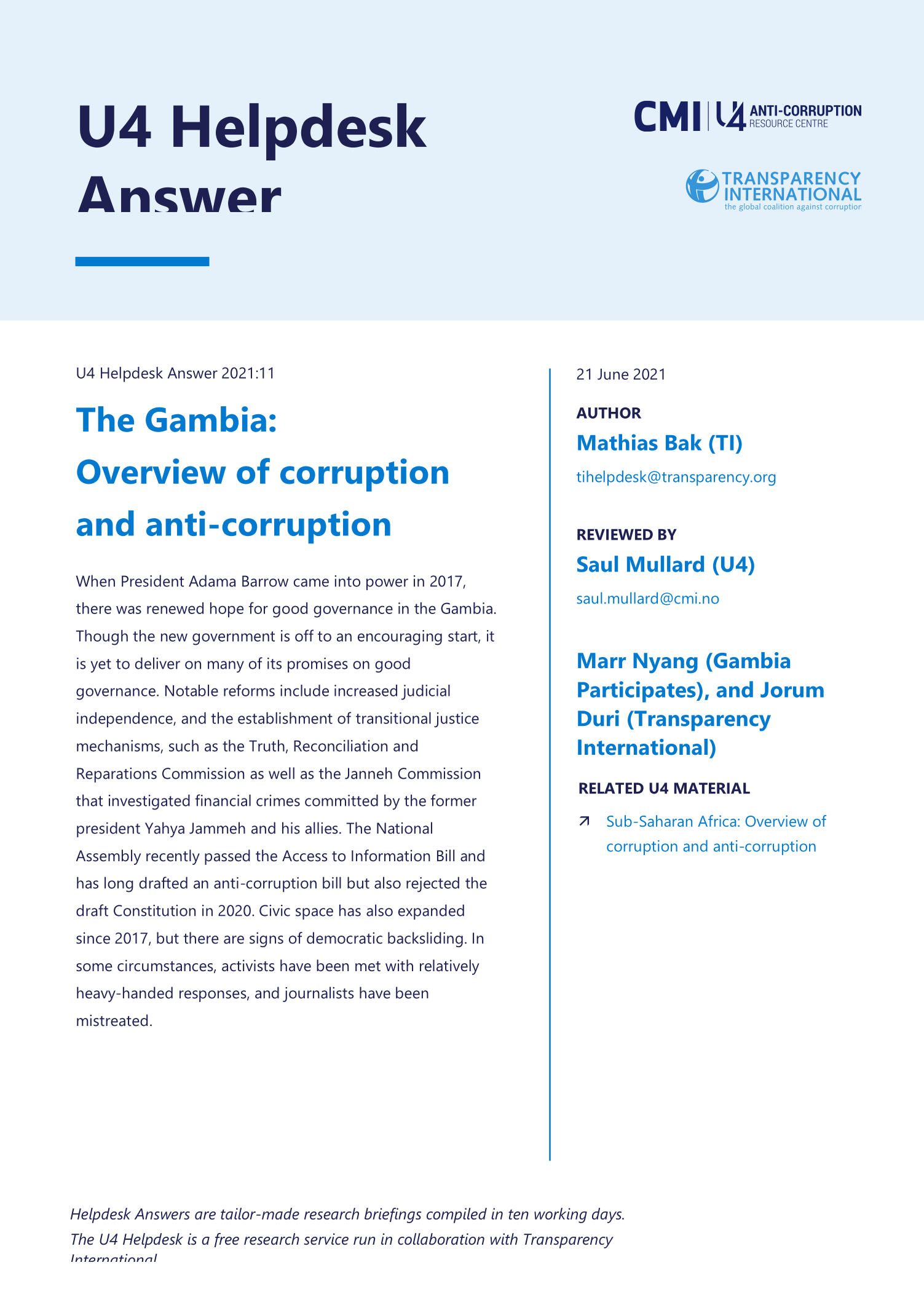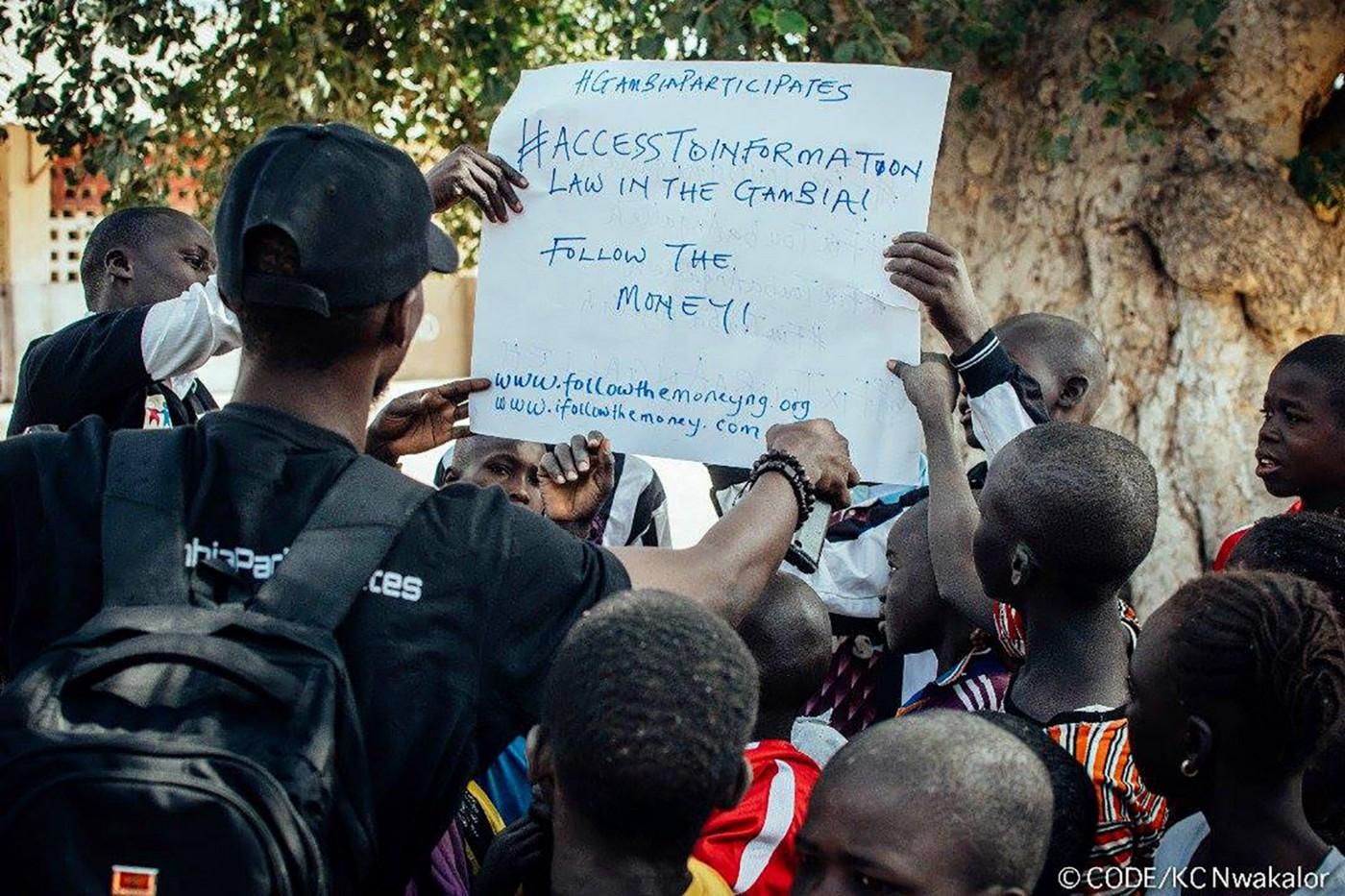Main points
- The Gambia has a score of 37 out of 100 on Transparency International’s 2020 Corruption Perceptions Index, which is a significant improvement from 2016 when it scored 26 out of 100.
- The National Assembly recently passed the Access to Information bill, which is an important step towards more transparency in government. However, the National Assembly has not passed many other institutional and legal reforms required for political transformation, leaving the Gambia with a weak anti-corruption framework.
- Civic space has expanded since the change in government in 2017. However, civil liberties are yet to be fully consolidated, and signs of democratic backsliding have begun to surface.


